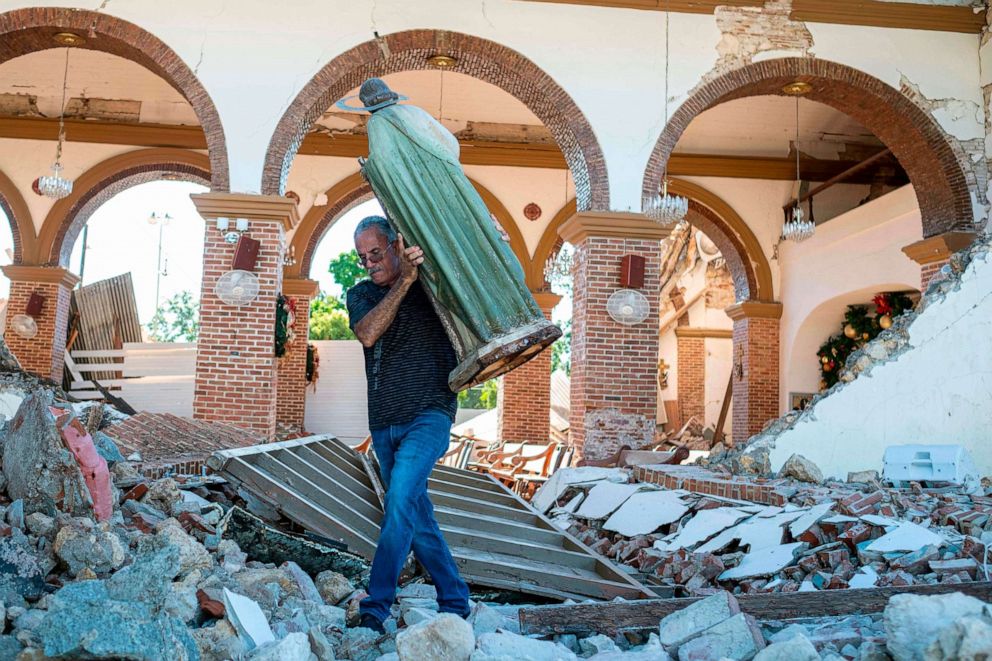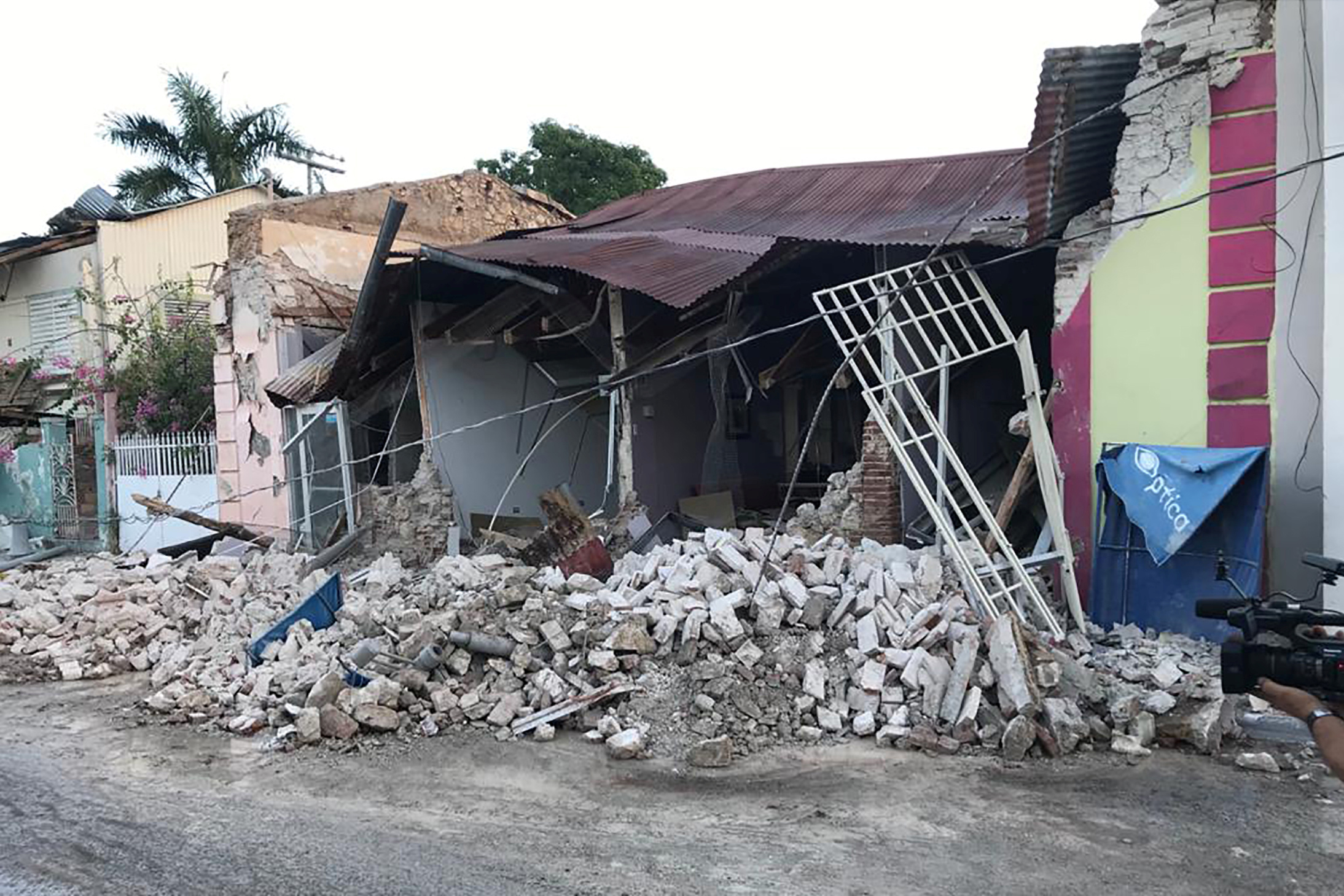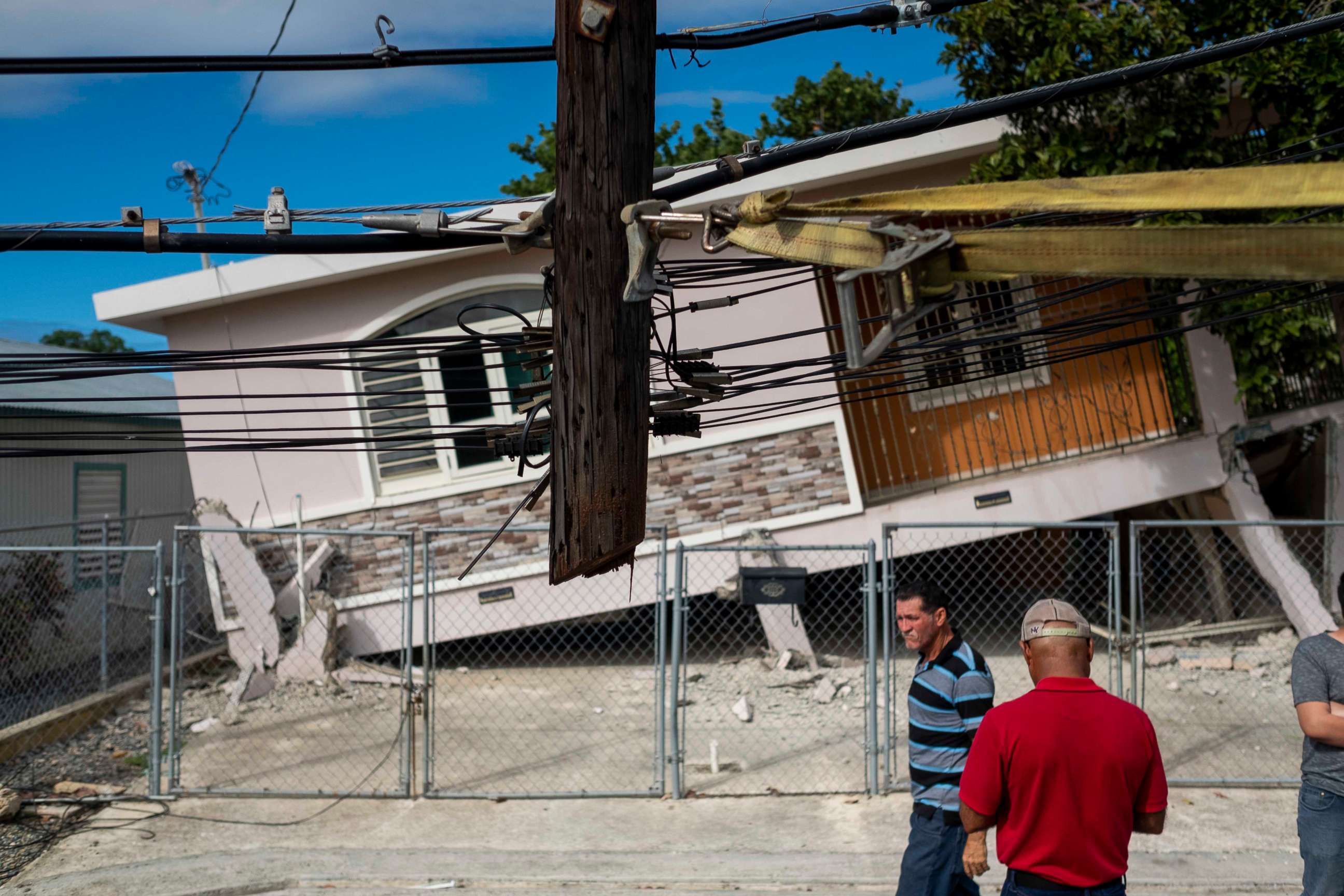State of emergency declared in Puerto Rico after 6.4 magnitude earthquake kills 1
The U.S. territory has been hit by a series of earthquakes in recent days.
A magnitude 6.5 earthquake struck Puerto Rico in the early hours of Tuesday, according to the U.S. Geological Survey (USGS).
Puerto Rico Gov. Wanda Vazquez signed an executive order declaring a state of emergency throughout the island Tuesday as well as an order that activated the National Guard.
The quake hit close to the town of Tallaboa on the island's south coast at 4:24 a.m. local time at a depth of 10 kilometers, USGS said. The magnitude was initially reported as 6.6, but was revised down first to 6.5, then 6.4.
At least one person is known to have died in the quake. The victim was killed when a wall collapsed on him at his home. Eight people are were also injured in the city of Ponce, near the epicenter of the quake.

There are collapsed structures in three towns, including at least one school, Vazquez said at a press conference Tuesday while urging everyone to "remain calm."
"It's been 102 years since the last large earthquake in Puerto Rico," she said, adding that "$130 million has already been freed up to help with the emergency."
White House deputy press secretary Judd Deere said in a statement that President Donald Trump was briefed on all the earthquake activity that occurred on the island over the last month.
"Administration officials, including FEMA Administrator Pete Gaynor, have been in touch with the Governor and her team today, and we will continue to monitor the effects and coordinate with Puerto Rico officials," said Deere.
Florida Sen. Rick Scott said on Twitter that 2,300 FEMA staffers are on the ground in Puerto Rick to support the recovery efforts.
"FEMA personnel in Puerto Rico are working closely with Puerto Rico Emergency Management Bureau and we have deployed two Incident Management Assistance Teams to the island," wrote FEMA spokeswoman Lizzie Litzow on Twitter. "Additionally, FEMA's Response Operations Cell in Washington,D.C. and Regional Response Coordination Center in New York are Activated to assist with any additional resource needs."
The Electric Power Authority reported an island-wide power outage, saying on Twitter that power plants had activated their protection mechanisms and gone out of service.
Authorities said damage had been reported at the Costa Sur power station, and they were evaluating the power infrastructure and urged residents to remain calm. The Electric Power Authority said it hoped it would be able to bring the power back online later Tuesday.
As of Tuesday afternoon, Vazquez planned on going to the power plant to asses the damage her and to "get a straight answer from energy authorities" on whether everything will be running soon.
Vazquez told reporters Tuesday afternoon she was unsure when power would be restored.
Over 300,000 customers do not have potable water, said Vazquez. The U.S. Coast Guard is conducting overflight assessments to identify any potential signs of pollution in the water or damage to the port infrastructure and navigable waterways.
All ports in Puerto Rico and the U.S. Virgin Islands remain open until further notice, the U.S. Coast Guard said in a news release.

Almost 350 people are in shelters, with most in one in Guánica, said Vazquez.
Videos posted on social media showed damage to buildings, including a church in the town of Guayanilla with a steeple that collapsed.
Vázquez announced on Twitter that public sector institutions would be closed for the day so workers "can be with their families, implementing their emergency plans." Schools are cancelled until Jan. 13.
In addition to the magnitude 6.5 quake, at least seven other earthquakes were recorded by the USGS as striking Puerto Rico in the early hours of Tuesday. Some of the subsequent quakes measured up to magnitude 5.6.

There is currently no tsunami warning in effect, according to the National Tsunami Warning Center.
"Of the island's 88 tsunami warning gauges, only 40 plus have been fixed after [Hurricane] Maria. Many are still waiting for funds to be fixed. The USGS will be sending more sensors to the island in the coming days," said Vazquez.
Trump was scrutinized for a slow response after Hurricane Maria devastated the island in September 2017 and has feuded with their political leadership.
Tuesday's quake comes one day after a 5.8 quake hit the U.S. territory's southern region, which has seen a string of quakes in recent days.
Monday's earthquake collapsed five homes and damaged many other buildings and also caused rock slides and power outages, according to the Associated Press.
ABC News' Jordyn Phelps contributed to this report




